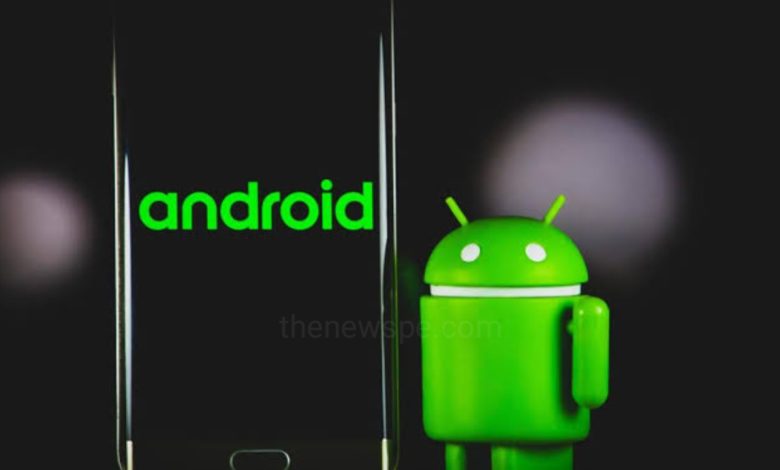Slowing Down Your Android Phone! Know Some Common Mistakes that Sluggish Your Android Performance

There are many things that can slow down your Android phone, from that some might even be things you’re doing yourself. Inthis article you are going to know about some common mistakes that slow down your android performance. Go through this article and know how you can avoid them.
A brand new Android phone is usually smart and responsive. However, it will begin to feel more sluggish as time passes by. Slow performance can be because of a wide range of reasons.
It could be because of corrupting parts, which is typical after expanded use. Another explanation could be that you’re accomplishing something that adversely influences performance without your knowledge. This is particularly evident on the off chance that your device isn’t old, however you’re encountering slow performance.
Here are a few common mistakes that may be making your Android gadget be sluggish and tips on what you ought to do all things considered.
1. Installing Lots of Apps
- Having lots of applications installed on your Android phone is one of the most widely recognized reasons for slow performance. Applications require memory and storage space to run. Thusly, more applications will consume a greater amount of your limited resources.
- The more applications you have, the more the quantity of background processes and, subsequently, your device’s performance will endure a shot. More applications can likewise be a reason for why your phone’s battery is draining so quick.
- One way to reduce the quantity of applications is first removing the appe that you rarely use. Also, remove any applications for any help that you can in any case access in your browser without burdens. This could be an social media application like Facebook, or an application from your number one news webpage, among others.
2. Using Heavy, Resource-Intensive Apps
- All applications are not something very similar. Some are resource-intensive, while others are lightweight and can run even on budget devices with less resources.
- Normal offenders are games (particularly RPG and fight royale ones), however even regular applications like Facebook can likewise impede your Android phone’s performance. Facebook and Snapchat are especially common culprits and you can’t miss them on any list of famous applications that lull Android.
- To settle this, go for the lightweight choices all things being equal. Commonly, lightweight applications are fittingly named Lite applications. For example, Facebook Light, the lightweight version of Facebook, weighs simply 1.6MB, way not exactly the 63MB of the main application. What’s more, assuming that Instagram is where you invest a large portion of your energy, there’s Instagram Light.
- The main proviso here isn’t numerous developers have embraced the Lite development. Be that as it may, you can without much of a stretch let know if an application has a Lite version by following the below steps:
- Open the Google Play Store on your android phone and search for an application you want.
- After you select the outcome, check in the event that there’s a Similar application available banner beneath the Install button.
- Assuming that there is, tap View to go to the Light application and tap Install to download and install it. You can now uninstall the full version that you never again need.
3. Not Regularly Updating Apps and System Software
Software updates basic to guarantee your gadget works appropriately and productively. Additionally, they assist with fixing existing bugs that may be making your gadget to slow down. Updates likewise fix security loopholes that make your device vulnerable against attackers.
In that capacity, you should constantly install updates for both your gadget and applications when they become available. All things considered, we suggest that you turn on automatic app updates
Follow these steps to enable automatic app updates:
- To enable the automatic app updates, go the Google Play Store of your android phone and in the top right corner, you will see your account profile icon tap on that.
- Then go to the Settings, select the Network preferences , open it and select Auto-update apps.
- After that select Over Wi-Fi only or Over any network and tap on Done.
- You can try this method if Google Play Store doesn’t auto-update apps, however your settings are fine. When it comes to system software, if there’s an update available, your device will automatically notify you.
4. Filling Up Storage Space
- Your gadget should to have free storage space consistently. This is significant in light of the fact that applications and the operating system need storage to run, and the read and write speeds of SSDs delayed down when they’re almost full. So assuming that you have less storage space, your system will run slow and lead to sluggish, performance.
- You can actually take a look at what’s topping off your storage by going to Settings of your android phone, select About device and then select Capacity. These steps will vary between different phone models.
- If you can’t find the specific area, utilize the search bar in the Settings and search for “storage.” Assuming you’re falling short on storage, any of the best phone cleaner applications will assist with taking care of business easily.
5. A Busy Home Screen
- While it’s rare to link a home screen to slow performance of device, but it likewise assumes a part.
- A home screen with lots of widgets consumes more memory and can undoubtedly hinder your Android phone. Keeping it basic and minimal will help free up resources. Although the performance boost will be insignificant, it’s better to not doing as such.
6. Not Restarting Your Phone Regularly
- Do you remember the last time you switched your phone off? If not, it’s about time that you powered off your phone to give it a new beginning.
- You don’t need to be offline for a really long time, simply restart your gadget, and you’re all set. This can likewise assist with fixing any bugs that you may insight.
7. Using Task Killers
- Task killers are well known in light of their pitch of helping free up memory. These applications work on the idea that lessening the number of background processes to free up memory will increase performance. However, this is absolutely false. Actually you don’t have to kill background processes; Android does this consequently.
- Rather than expanding performance, task killers make the contrary effect. What’s more, since certain tasks are important for your system to run, killing them won’t prevent them from running. All things considered, they will restart immediately, and that will be burdening to your gadget’s performance. So keep away from task killers at all costs.
8. Manually Stopping Apps
- Task killers and manually stopping apps have a similar effect on your android device performance. Clearly, it’s more straightforward to bounce once again into an application while it’s still open than start it over again.
- At the point when you force close an application then start it again all along, it will require more work to fire back up. Android leaves some applications to run in the background to jump back in when you need to flawlessly. Plus, Android deals with memory management automatically, so you don’t need to stress over it.




